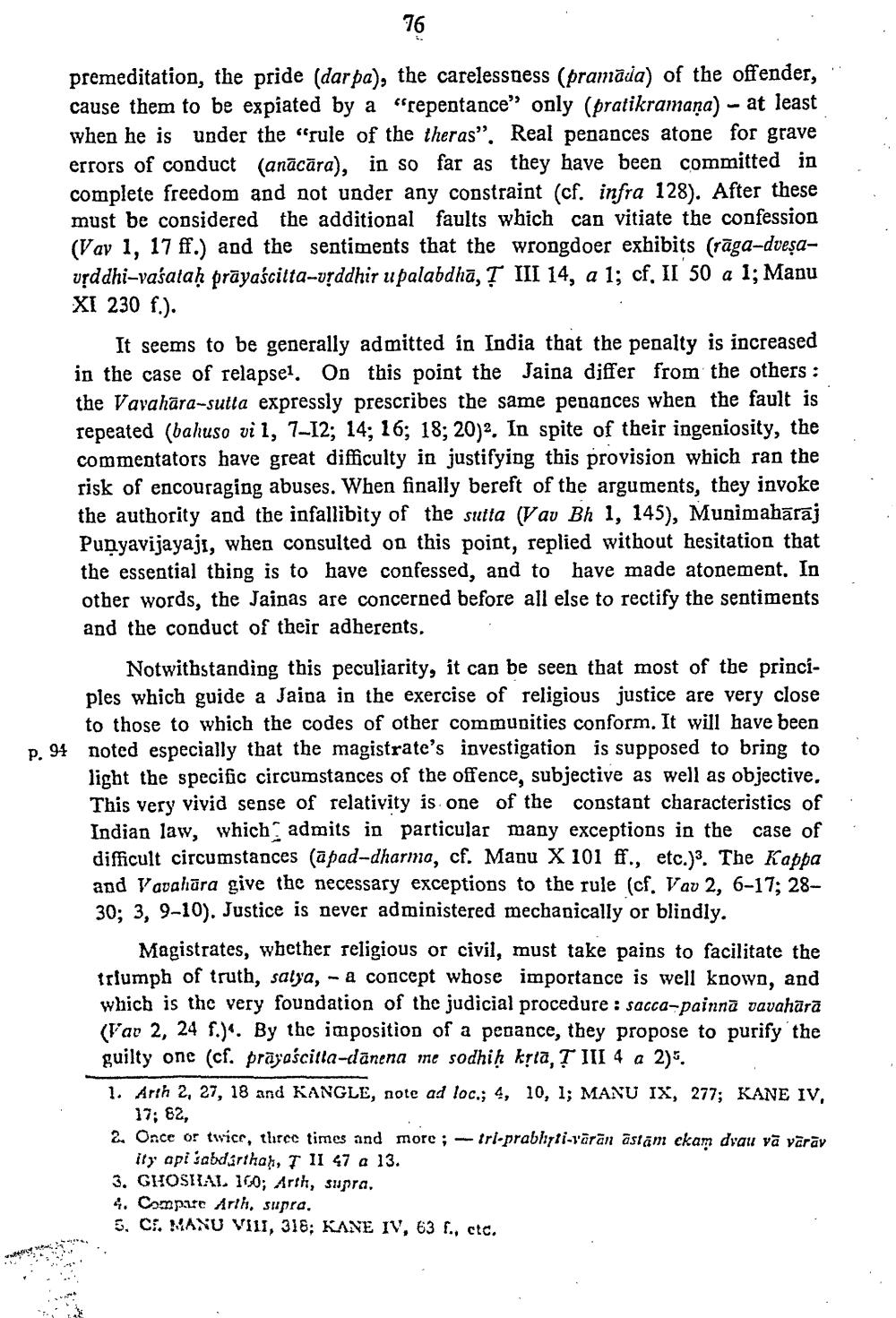________________
76
premeditation, the pride (dar pa), the carelessness (pramāda) of the offender, cause them to be expiated by a "repentance” only (pratikramana) - at least when he is under the "rule of the theras". Real penances atone for grave errors of conduct (anācāra), in so far as they have been committed in complete freedom and not under any constraint (cf. infra 128). After these must be considered the additional faults which can vitiate the confession (Vay 1, 17 ff.) and the sentiments that the wrongdoer exhibits (rāga-dveşavşddhi-vasataḥ prāyaścitta-uddhir upalabdha, Ţ III 14, a 1; cf, II 50 a l; Manu XI 230 f.).
It seems to be generally admitted in India that the penalty is increased in the case of relapsel. On this point the Jaina differ from the others : the Vavahāra-sutta expressly prescribes the same penances when the fault is repeated (bahuso vi 1, 7-12; 14; 16; 18; 20)2. In spite of their ingeniosity, the commentators have great difficulty in justifying this provision which ran the risk of encouraging abuses. When finally bereft of the arguments, they invoke the authority and the infallibity of the sutta (V av Bh 1, 145), Munimahāraj Punyavijayajı, when consulted on this point, replied without hesitation that the essential thing is to have confessed, and to have made atonement. In other words, the Jainas are concerned before all else to rectify the sentiments and the conduct of their adherents.
.
Notwithstanding this peculiarity, it can be seen that most of the principles which guide a Jaina in the exercise of religious justice are very close
to those to which the codes of other communities conform. It will have been p. 94 noted especially that the magistrate's investigation is supposed to bring to
light the specific circumstances of the offence, subjective as well as objective, This very vivid sense of relativity is one of the constant characteristics of Indian law, which admits in particular many exceptions in the case of difficult circumstances (a pad-dharmo, cf. Manu X 101 ff., etc.). The Kappa and V avahūra give the necessary exceptions to the rule (cf. Vav 2, 6-17; 2830; 3, 9-10). Justice is never administered mechanically or blindly.
Magistrates, whether religious or civil, must take pains to facilitate the triumph of truth, salya, - a concept whose importance is well known, and which is the very foundation of the judicial procedure : sacca-painna vavahārā (Vav 2, 24 f.)«. By the imposition of a pegance, they propose to purify the guilty one (cf. prāyaścilla-danena me sodhih krta, T III 4 a 2). 1. Arth 2, 27, 18 and KANGLE, note ad loc.; 4, 10, 1; MANU IX, 277; KANE IV.
17; 62, 2. Once or twice, three times and more; - tri-prablıyti-värän astam ekam drau vā vērāv
ily api labdartham, T II 47 a 13. 3. GHOSILAL 160; Arth, supra, 4. Compare Arth, supra. 5. CI. MAXU VIII, 316; KANE IV, 63 f., etc.




